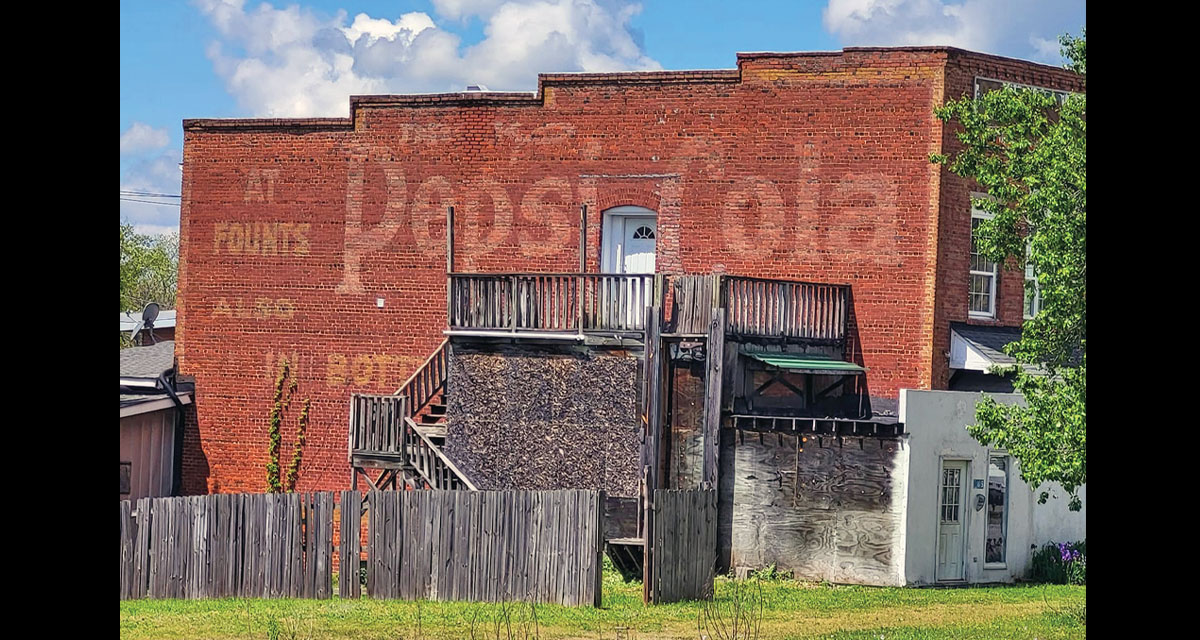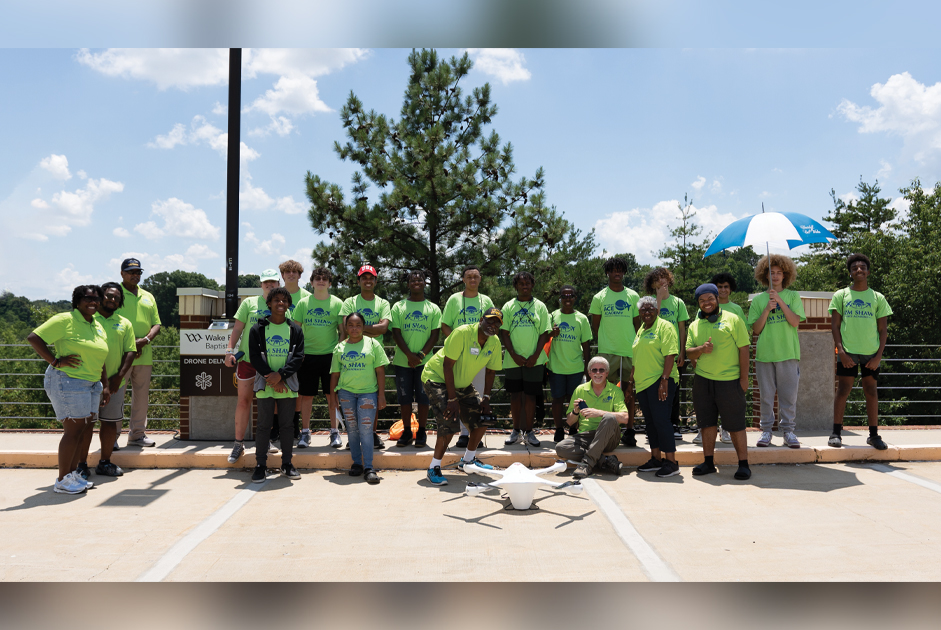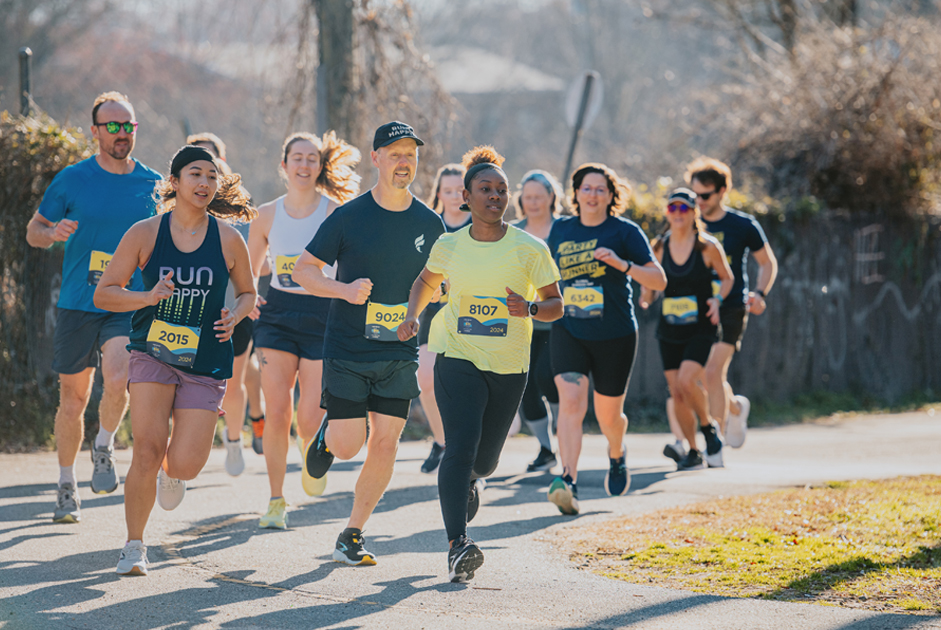by RENEE SKUDRA
My Canadian dad was always telling me to “pay attention.” I have taken that as a general rule of thumb, whether it comes to leaning into hearing others’ stories or studying the natural world with an inquisitive and appreciative eye. When I was driving rather aimlessly one Friday with no particular destination in mind, I happened upon the small town of Rural Hall, and my interest was immediately sparked. The winding road took me through farmland, historic homes, and I particularly loved the expanses of simple open space. Seeing the public library there, I walked in, sat down and did an internet search on a place I had discovered through mere happenstance; which was lovely, slow-moving and tranquil to the eye but felt like it still belonged to another era with its old buildings and undeveloped areas that had resisted the advance of industrial development, shopping malls, the fanfare of popular culture and, in general, seemed to simply have discouraged the impediments of noise.
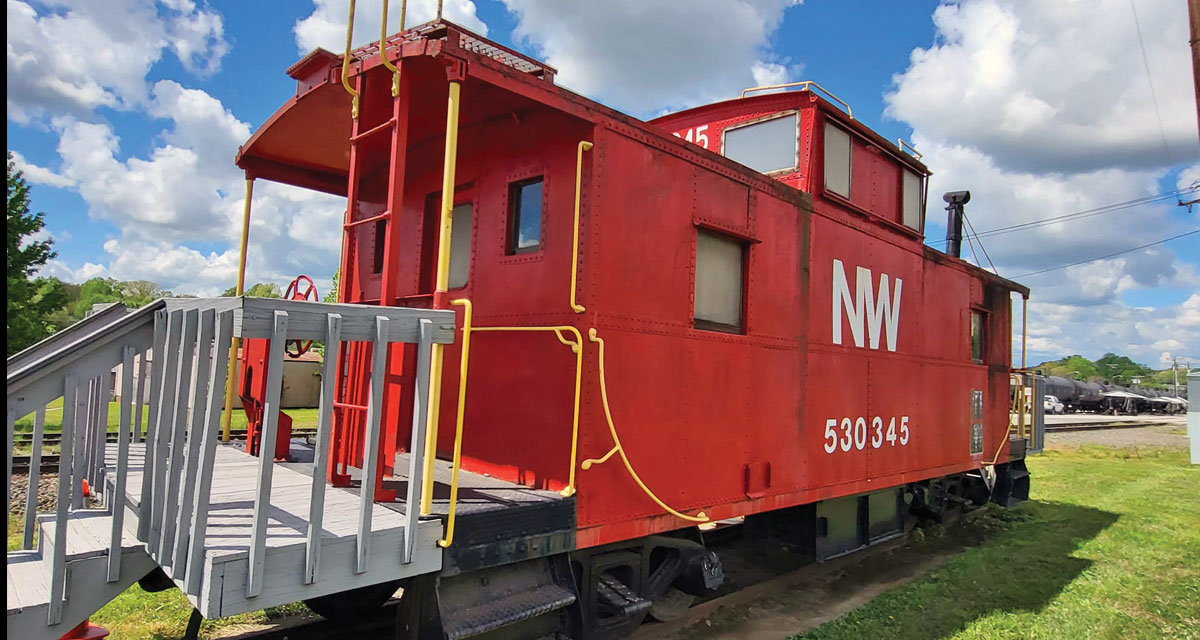
With some help from the librarian and a few curious and chatty visitors, I learned that Rural Hall had originally been a small railroad town with old brick storefronts and ghost signs. Located in northern Forsyth County, it is bordered to the south by Winston-Salem and the village of Tobaccoville to the west. The town developed after the Cape Fear and Yadkin Valley Railroad erected a station in 1887. In the 19th century, the railroads were the key to Rural Hall’s growth, and, to this day, they continue their original importance – Rural Hall is now the operational center of the Yadkin Valley Railroad, and if you take a gander, you can see many of the locomotives idling there when not in working mode. The town has a population of approximately 3,196 people and 721 businesses but doesn’t seem to know it is a small place. In fact, it is affectionately known as the “Garden Spot of the World” and is home to a local garden club that enthusiastically meets monthly.
The earliest settler was a gentleman named Anthony Bitting who was born in Pennsylvania in 1738 to a German-American family. Legend has it that he supplied materiel to the Continental Army and that he served in the Revolutionary War as a lieutenant colonel in the 4th Battalion of the Philadelphia Militia. This Revolutionary War soldier is buried in the graveyard at the Nazareth Lutheran Church along with many of his descendants. Many Bitting family members still live in the county, and Anthony’s grandson, Benjamin Lewis Bitting, actually built the house that gave Rural Hall its name. Another early settler, German-born Johann Adam Geiger donated 102 acres to this church which still stands and continues to serve the community.
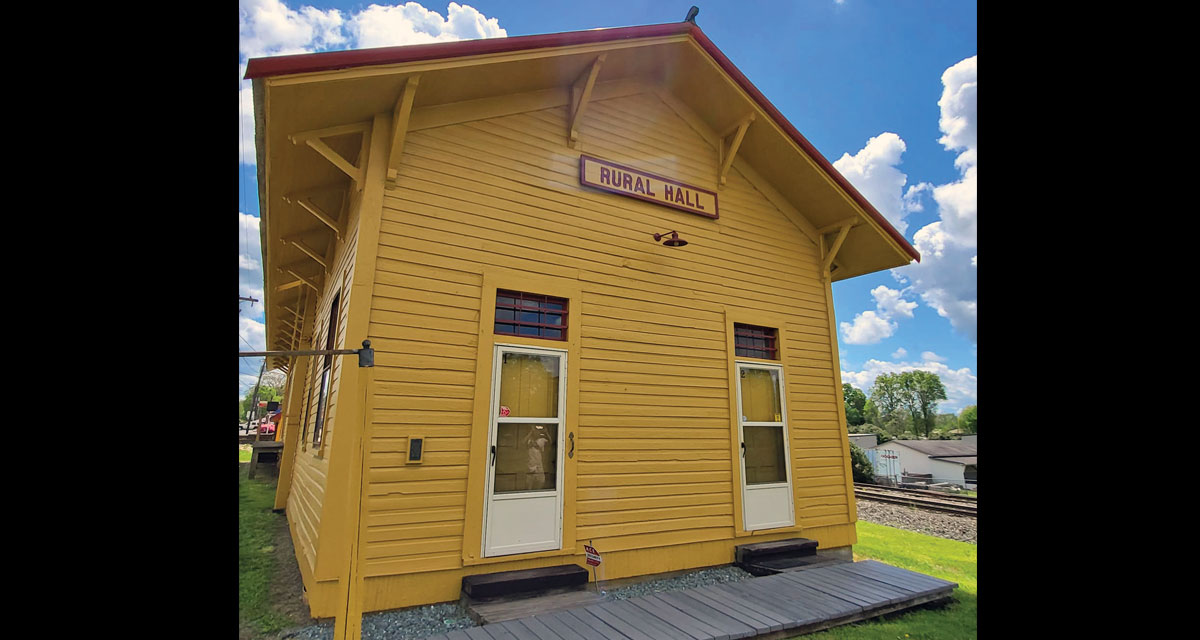
One can easily envision that the beauty of the landscape is not much different than that which greeted its earliest inhabitants. Some folks say that Rural Hall has a sparse suburban feel and is considered to be a suburb of Winston-Salem, but my own personal take on the matter was that it was more of a quaint town, with an unhurried and quiet atmosphere and very friendly people. I have always heard that southerners love nothing better than a good conversation chock-full of small histories and back-in-the-day memories, and my experience of the afternoon I spent in Rural Hall was precisely that. There is a good supply of wonderful amenities – plenty of outdoor activities such as hiking, fishing and camping as well as an attractive place to hang out – Covington Memorial Park. I was struck by how green everything was and the many trees and flowers that populated the environs.
If you take a trip to Rural Hall, be sure not to miss the Rural Hall Depot which was listed on the National Register of Historic Places in 1983. Its bright yellow color will immediately draw your eye towards it as well as to the train cars adjacent to the area which it proudly calls home. The downtown area is sparse but has a lovely guitar store in a building dating back to the early 1920s and several businesses including an antique business and old properties which have been repurposed into various establishments. A historic marker in the downtown area mentions Stoneman’s Raid which was the Union cavalry foray led by General George Stoneman in April 1865, resulting in the destruction of Confederate supplies and infrastructure. Another historic marker by the Rural Hall Library alludes to the Great Wagon Road which was the trail that settlers from Pennsylvania traveled on to their eventual home in North Carolina.
The town also features a variety of events. In May, for example, a popular band presented a tribute to the music of the 1980s, offering a great re-creation of the iconic MTC era of song. Concerts also take place at the Town Hall, complemented with an array of food trucks, basketball games and bounce houses for the kids. The antique tractor show, annual Christmas parade and tree lighting and the Rural Hall Garden Plant Sale attract a good number of people. If you are seeking some peace and a pocket of tranquility, make a sojourn to this lovely place which quietly proclaims its charm through its affable citizenry, the beauty of old, well-cared for homes and a pastoral landscape that calms the nerves and soothes the soul.

